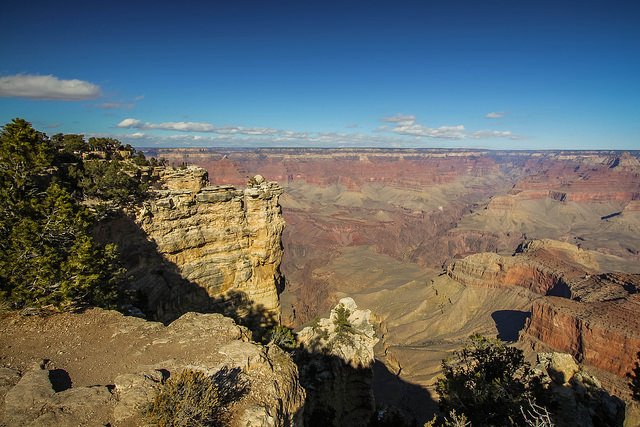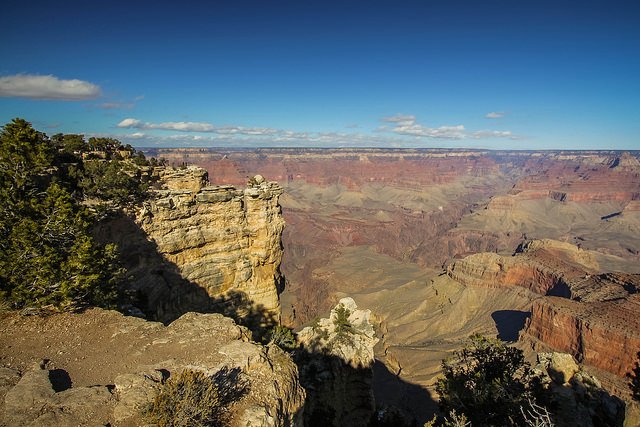
Everyone knows to stay hydrated during a hike. But did you know drinking too much water could be fatal also?
In what’s being called the first documented case of its kind in a wilderness environment, a 47-year-old woman who had been hiking at the Grand Canyon died from so-called water-intoxication.
The exact cause of the woman’s death, according to a review published in the Journal of Wilderness & Environmental Medicine, is exercise-associated hyponatremia causing severe cerebral edema, which basically means that she drank so much water during exercise that the salt levels in her blood plummeted causing her brain to swell.
The precise amount of water the woman drank is unknown. What is known is that she was an otherwise healthy British woman who in September 2008 went hiking with her husband on a hot sunny afternoon into one of the most amazing hiking destinations in the United States. The couple covered more than six miles in five hours and returned to the Grand Canyon Village by bus. That’s where she fainted, according to the paper.
With no physical head injuries, she remained disoriented while paramedics arrived. Complaining of a headaches and was transferred to an ambulance with an IV line attached. Sometime during the ride, she reportedly sat straight up, yanking the IV out of her arm and vomiting clear liquid. Later at the hospital, she was declared brain dead.
This is a sobering case, indeed, but not the firs time someone has died as a result of consuming too much water. In 2007, a woman died after competing in a Sacramento radio station contest. The bottom line is that you have to pay attention to your body. If you’re drinking a lot of water, be sure you’re able to urinate. All you’re looking for here is a clear stream. Nothing more and nothing less.
During physical exertion, the brain can only handle too much. Strenuous exercise reduces sodium levels in the blood stream, causing the brain to swell. If it swells more than 6 percent, it presses against the skull causing convulsion, brain damage and even death. Add to that excess water and the brain can swell even more.
“Early symptoms of EAH include nausea, vomiting and headache, which can rapidly progress to confusion, altered mental status, seizure, and death if untreated,” doctors wrote in the report. In rare cases, marathon runners have reported cases, leading race officials to advice drinking no more than three litres of water during a race or they might risk death.








